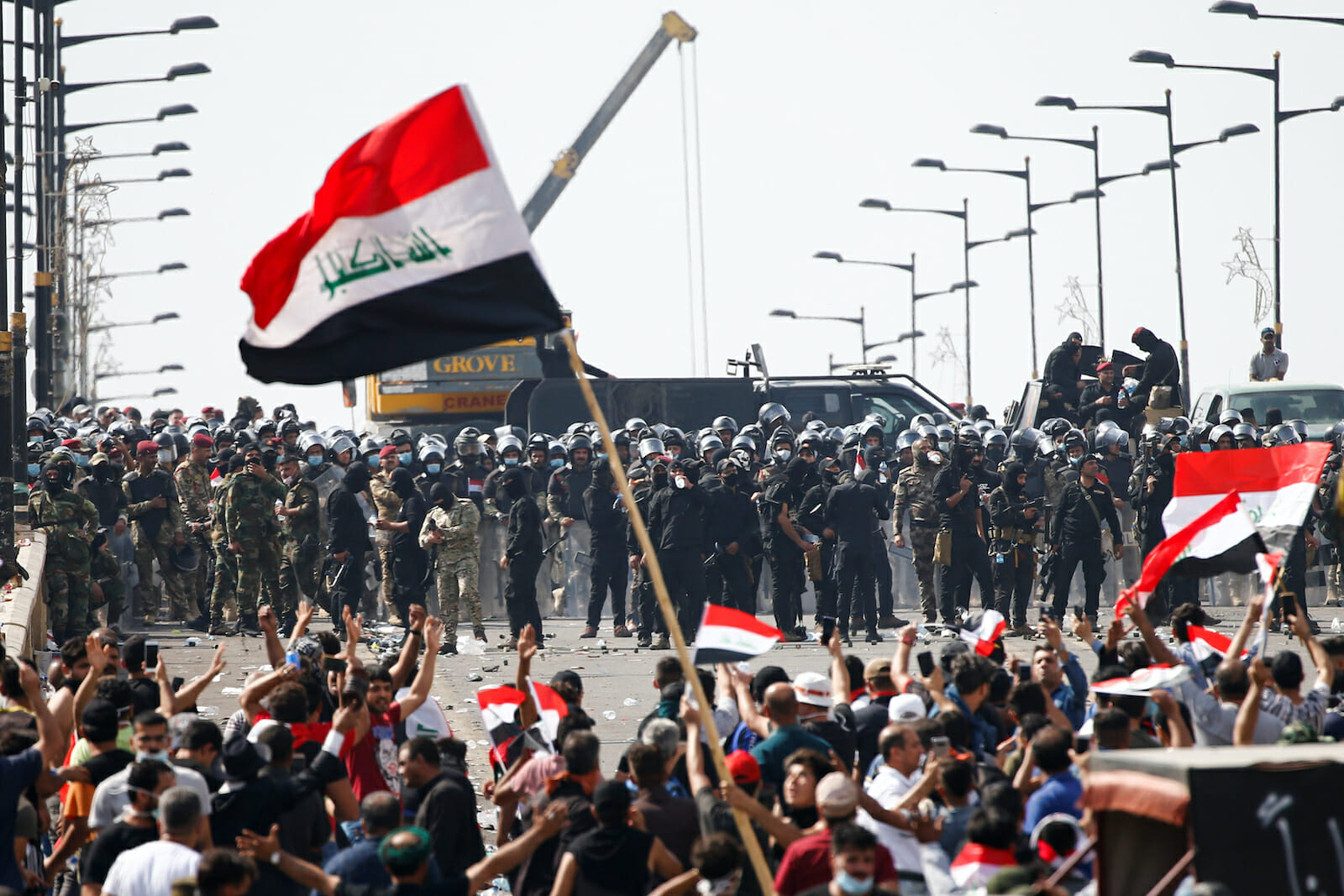
The UN Must Call Out Iran on its Treatment of Protesters in Iraq
For the past four months, Iraq has been the center of great political turmoil after protesters, the majority being young people, gathered in the streets of Baghdad to demand economic development and freedom from Iranian influence. Iraq’s Federal Police force and other pro-Iran militias have cracked down, using live ammunition as well as tear gas and smoke grenades against peaceful protesters who are exercising their right to free speech.
Iran is interested in shutting down anti-government demonstrations, knowing public opinion is attempting to influence the government of Iraq against their interests, but it is their meddling in Iraq’s affairs that is fueling the anger amongst the population. Their interference is not just through Iraq’s political affairs, but also the country’s social and cultural affairs, ensuring that Iraq functions according to the interests of Iran. There is only one way to overcome this problem, and that is for the UN to support the people of Iraq and to assist in overcoming the shadow occupation of their political system. The UN must condemn Iran, rid Iraq free from foreign interference in Iraq’s political, cultural, and social affairs, and assist Iraq in regaining its sovereignty.
Since the fall of Saddam Hussein’s government in 2003, Iraqis have repeatedly found themselves in the center of conflict, and promises of democracy have not transformed into reality. American occupation gradually switched to Iranian influence, especially since the U.S. retreated. Iran has succeeded in infiltrating the Iraqi government, only electing those who are loyal to Tehran.
After the withdrawal of American troops from Iraq in 2011, Iran has slowly taken over sectors of the armed forces and the political system, even arming the coalition that put former Prime Minister Adil Abdul-Mahdi in power in 2018. Iranian interference also kept him in office amid rising popular discontent, until he was finally forced out by protests.
Iran-backed militias and security forces have been forceful and violent against the demonstrators. According to Amnesty International, over 600 people have been killed in the streets so far and thousands have been wounded, creating a flashback to the years of Saddam Hussein’s brutal dictatorship. Tents of protesters have also been set on fire, and a two-week-long Internet blackout was put in place to deter protests.
The Federal Police is controlled by the powerful Ministry of the Interior that has a long-standing and important presence within the Badr Organization, a powerful group with ties to Iran. Iraq directly funds pro-Iran militias and political groups, such as Badr, with public resources. While this expenditure might have been justified during the battle against ISIS, Iraqis are now paying a heavy price for the intervention, as Iran has been fostering embezzlement, corruption, and conflict in their territory. Citizens have had to carry the full weight of these negligent actions through rampant unemployment and corruption, while public funds are being diverted away from the people and towards Iranian agents with strategic positions in the government. The people of Iraq are suffering under the current regime: 23% of the country’s 32 million inhabitants live in poverty. UN decision-makers will need to take serious action to improve their lives and reform the political system in order to appease the citizens.
Iran’s interest in Iraq is not to support the people, but to steer the re-emergence of Iraq in a way that is strategically beneficial to Iran. This means a weak, pro-Iran and anti-American government in Baghdad, and the expansion of their power in the region. Iran’s expanding influence is also detrimental to international security, which should concern the UN. Iran has been a rogue state for several decades, declining to comply with international norms and conventions, and has a long history of supporting terrorist organizations and other non-state actors that perform and plan attacks in the rest of the world.
Neglect of human rights is now a daily occurrence on the streets of Baghdad and other big cities in Iraq, and it is clear that Iranian political interests are at odds with Iraqi wellbeing and post-war reconstruction. The protesters have noted this, and they will not accept answers that don’t address the underlying issue of Iranian intervention. It is important that Iraq regains its sovereignty as soon as possible so that its citizens are not faced with the constant threat of Iranian meddling.
To honor its commitment to human rights, the UN needs to address the genuine demands of protestors that are also defended and supported by Iraq’s pro-sovereignty groups. These groups, like the National Wisdom Movement and the National Independent Iraqi Front advocate for the removal of Iran from Iraqi political and economic life, and expose the Iraqis who enable any interference.
In the absence of Iranian interference, Iraq can press ahead with rebuilding its government and economy. Iraqis could also share in lucrative trade and investment deals from the Gulf Cooperation Council that are currently off-limits given Iranian influence in Iraq’s government.
16 years after U.S. intervention, Iraq needs the international community to step up and demand that its sovereignty be guaranteed. Only then can it have the opportunity to finally achieve the political stability and development its people deserve. The UN must recognize Iran’s actions on Iraqi citizens and join their demands for change.

